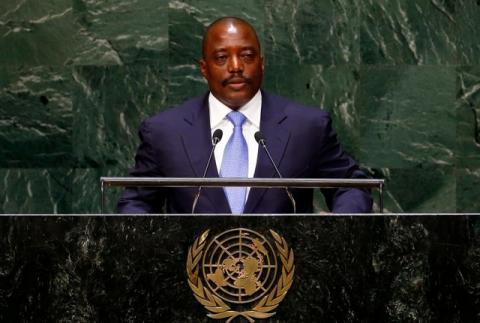Advertisement
Congo government strikes deal with some opponents on elections sequence
KINSHASA (Reuters) - Backers of Democratic Republic of Congo President Joseph Kabila and part of the opposition agreed on Wednesday on the sequence of a series of upcoming elections, potentially removing a major obstacle to breaking a dangerous political impasse.
The compromise came just two days after opposition leaders walked out of the talks on the timing of the presidential election, which was due to happen in November but which authorities say cannot be held before July.
The opposition had insisted the presidential election be the next poll held. The government said local elections should take place first, likely further delaying the presidential vote.
While Wednesday's agreement between the government and a group of opposition parties set no specific dates, the two sides agreed the presidential vote would be combined with legislative and provincial elections, with local polls to be held later.
"This opens the way to a calendar that will mention the exact date of the handover of power between the old president of the republic ... and the newly elected president," said Vital Kamerhe, one of the leading negotiators for the opposition.
Justice Minister Alexis Thambwe Mwamba, who is representing Kabila's political supporters in the talks, confirmed the agreement.
"We solemnly announce to you that we will finance these elections. Take note of it," he said.
Despite the apparent advance in the negotiations, efforts to broker a peaceful exit from power for Kabila, who has led Africa's leading copper producer since the assassination of his father in 2001, remain fragile.
Congo has never experienced a non-violent transition of power since independence from Belgium in 1960.
Most major opposition parties are boycotting the talks, which they see as giving Kabila a chance to justify what they say is his plan to stay in power beyond the end of his mandate in December, breaking constitutional term limits.
Diplomats and observers fear the political crisis could trigger a repeat of civil wars that killed millions of people between 1996 and 2003.
(Reporting by Amédée Mwarabu; Writing by Joe Bavier; Editing by Peter Cooney)



















Add new comment